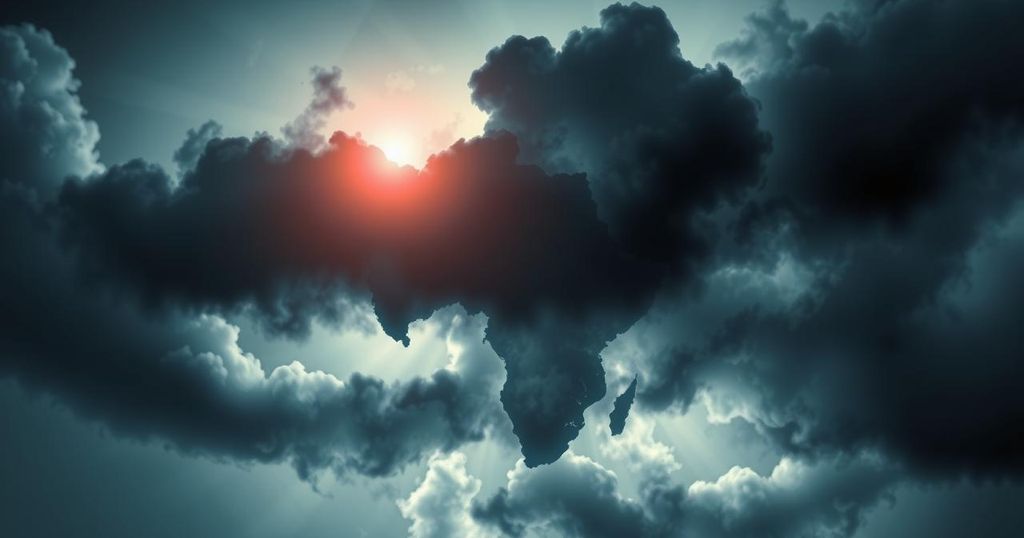Implications of the Trump-Zelenskyy Confrontation on International Relations
The clash between President Trump and President Zelenskyy resulted in significant diplomatic repercussions, particularly for Ukraine, which emerged as the biggest loser. European leaders expressed anxiety about US reliability, while Russia celebrated the incident. China stands to gain from the uncertainty, and India’s position remains cautious as it navigates the evolving political landscape. Analyzing these dynamics reveals a complex shift in international relationships and power balances.
US President Donald Trump characterized his confrontation with Ukrainian President Volodymyr Zelenskyy in the Oval Office as “great television.” However, this public showdown has been deemed a significant failure in the realm of international diplomacy. It is exceedingly rare for a leader to publicly embarrass an ally, particularly in front of cameras, and this incident marks an unprecedented low in diplomatic interactions.
Following the incident, foreign policy experts from various nations have had time to analyze its implications, with some countries responding publicly. One thing is certain: Ukraine and President Zelenskyy emerged as the primary casualties of the interaction. Zelenskyy not only faced public humiliation but also failed to secure a deal that would grant the US access to key mineral reserves in Ukraine.
Criticism of Zelenskyy poured forth from Trump’s allies, with Senator Lindsey Graham expressing doubt about future dealings with the Ukrainian leader and Senator Roger Marshall declaring, “Not another penny” in reference to American aid to Ukraine. Although US assistance has not yet been halted, the future of this support remains uncertain, as Trump consolidates his power with significant leverage over Kyiv.
European leaders are understandably anxious following this incident. The unpredictable nature of President Trump raises concerns about the reliability of US support to its allies. Recent events have exacerbated an existing rift related to Ukraine policy, causing European leaders to voice their support for Zelenskyy and question America’s role in providing stability. EU foreign policy chief Kaja Kallas stated, “Today, it became clear that the free world needs a new leader.”
Russia, on the other hand, is openly celebrating the fallout of this meeting. Trump’s firm stance against Ukraine not only hinders Ukraine’s efforts but also drives wedges within NATO, strengthening Russia’s favorable position. Kremlin figures have publicly gloating over the incident, with former Russian President Dmitry Medvedev remarking on the encounter’s nature in a post. This development may impede Ukraine’s resistance and facilitate the Kremlin’s desire for a more pliable Ukrainian government.
Meanwhile, China is observing these developments with quiet satisfaction. Although it has not made public statements regarding the confrontation, the erosion of trust in American foreign policy could lead nations to consider China as a viable alternative partner. The failed minerals deal between the US and Ukraine further benefits China, as it removes a mechanism aimed at reducing global dependence on its rare earth materials.
In New Delhi, Indian officials are likely to proceed cautiously in light of recent events. Prime Minister Narendra Modi’s recent meeting with Trump has reportedly remained constructive and respectful. However, India is not expected to take a formal stance on this incident. According to diplomatic editor Shubhajit Roy, India will continue to maintain its neutral position, supporting principles of international law and sovereignty without overtly siding with any party involved in the dispute.
In summary, the fallout from the Trump-Zelenskyy confrontation has profound implications for international relations. Ukraine has been significantly damaged, losing critical negotiating ground and support. Europe is left in a precarious position regarding US reliability, while Russia and China seem poised to exploit the situation to their advantage. As global leaders react, the long-term effects on geopolitics remain uncertain. India, for its part, will likely tread carefully amid the shifting dynamics, maintaining its commitment to a balanced diplomatic approach.
Original Source: indianexpress.com




Post Comment